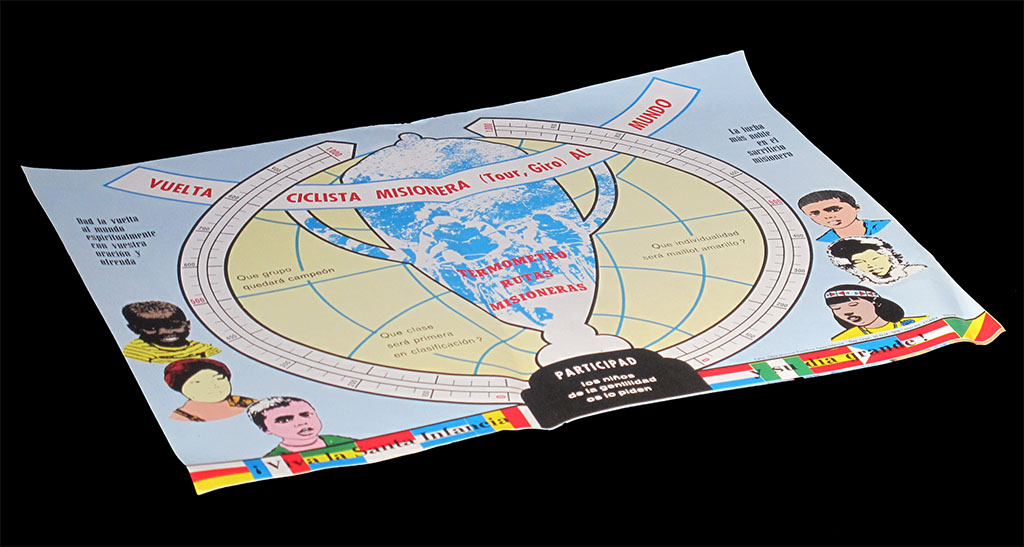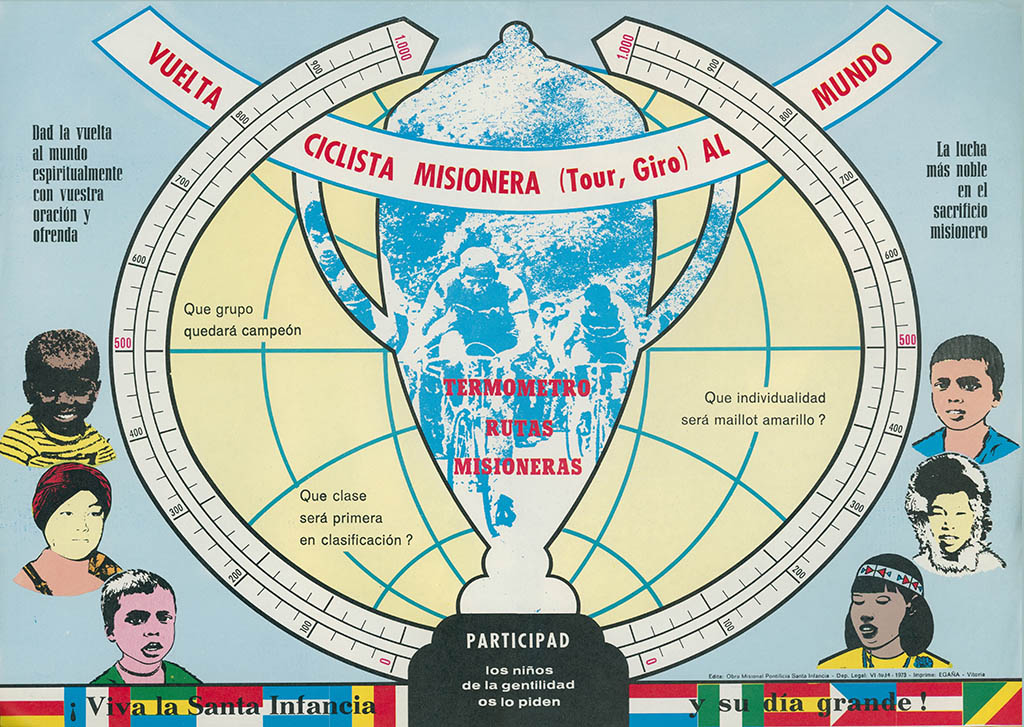
VUELTA CICLISTA MISIONERA
(TOUR, GIRO) AL MUNDO
Obra Misional Pontificia Santa Infancia, Spain, 1973

One of the problems of running a website called cyclingboardgames.net is drawing the limits of what a "cycling board game" is. I have written elsewhere about games that are not strictly "board games", and I have spent some time thinking about what is "a cycling game" and what is not. The fastest way to check what kind of games I have decided to include in the site is is to have a look at the categories index. You may agree or disagree with my decisions, but after all this is a curated website, and I am the one who takes decisions.
However, there are cases where I am not really sure if an item should be featured on the site, and generally the most difficult decisions are when I am not even sure if what I have in my hands is even a game, as is the case with this Vuelta Ciclista Misionera.

I just have this 42x30 cm board printed on plain paper. It could as well be a just small poster and, at first sight, it even looks like a modern reissue printed on an A3 sheet. However, I do not think it is, being a couple of millimetres bigger than a standard A3. And although I am not an expert in printing techniques, when I have it in my hands, I feel it is genuine.
As I said, even though it kinda looks like a game, I cannot be really sure. There are no game complements like cyclists or simple counters, of course no dice, not even rules.
Nevertheless the questions printed on the "board": "what group will be champion", "what class will be first in classment?", or "which individual will be the yellow jersey?", along with the encouragement "Participad" (take part) hint at some kind of contest between school classes. Since it is obvious that they cannot physically race around the world, as says the title of this "game", the contest must be at a symbolic level (i.e., a "game") for which this "board" provides a way to keep track of the results.
![]()
Whatever it is, this was printed in 1973 in Vitoria by the Obra Misional Pontificia Santa Infancia, which is a Pontifical Mission Society. One wonders why they would use a cycling game to promote their ideas, but we must remember that in 1973 Luis Ocaña won the Tour de France, and that Spain held the Worlds, both the unforgettable road race at Barcelona (which I attended) and the track events at the Anoeta velodrome in San Sebastian, quite near Vitoria. Cycling was huge in Spain at the time, and it was as good a way to promote whoever's ideas as any other, I guess.
In case you know more about this game, or have further thoughts about it, please contact me.
Description written in July 2024
 |
 |
 |
 |
 |
|
CULTURE IDEAS |
TOTUM REVOLUTUM THUMBNAILS |
NAMES ALPHABETICAL |
CATEGORIES LISTS |
WHAT'S NEW BLOG |